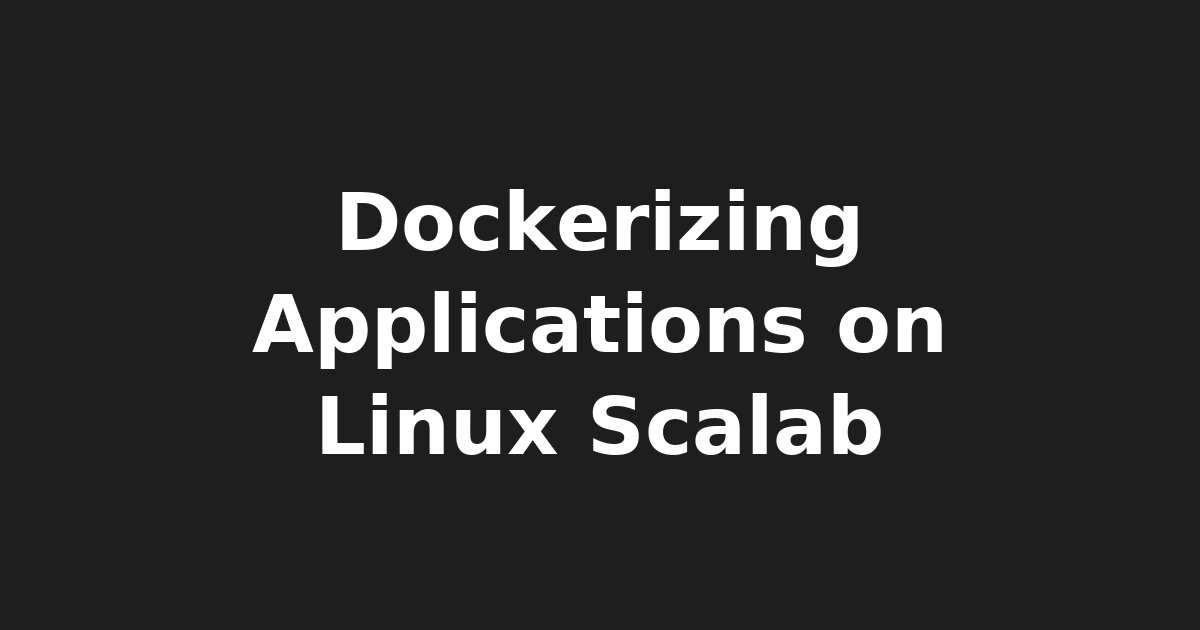Mastering Docker: Containerize Applications for Scalable Self-Hosting…

Dockerizing Applications on Linux: The Ultimate Guide for Tech Enthusiasts (Like You!) by Josh from KeepItTechie
Hey there, tech-loving friends! Josh here, your friendly neighborhood Linux educator. Today we're diving into a hot topic that's causing quite the buzz in our community - Dockerizing Applications on Linux. This is essential knowledge for developers, system admins, and IT pros who want to keep their self-hosting game strong!
First things first: What's the big deal about Docker? Well, my friends, it's all about containerization - think of it as a magical box that holds your application (and its little dependencies) tightly together. This makes deploying apps consistent across different environments, even those alien Linux systems you might encounter in your journeys.
But wait, there's more! Docker also offers scalability, something IT pros crave like coffee on a long coding night. With the rise of microservices architectures and DevOps practices, containerization is becoming as common as a Linux terminal window in a tech workspace.
Now, let's get our hands dirty! Picture this: You have an app that needs to be deployed on a Linux system. Instead of spending hours setting up dependencies, you simply Dockerize it. That means taking your application and its requirements, packaging them into one portable unit - a container! This makes deployment, maintenance, scaling, and upgrades a breeze in self-hosted environments.
As more developers jump on the containerization bandwagon, mastering tools like Docker is becoming as essential as knowing how to brew the perfect cup of coffee (or tea, no judgement here). So let's get started!
Tip 1: Start small and simple. Choose a basic app to learn the ropes. You don't need to run before you can walk!
Tip 2: Don't forget about networking. Containers need to communicate, just like us techies do during those late-night coding sessions.
Tip 3: Docker Compose is your new best friend. It helps manage multiple containers in a single project - think of it as the IT manager making sure everything runs smoothly.
Now, let's talk about the future. By 2025, it's predicted that over 75% of global organizations will be using containerized applications in their infrastructure [source: Statista]. That's a pretty big pie slice, and you don't want to miss out on a tasty tech trend!
Remember, this isn't just about the technology. It's about empowering developers like us to create, innovate, and build the future of technology - one container at a time. So grab your favorite beverage, settle in, and let's learn together!
Stay techie, stay awesome! 💻🚀📚
External Link: Docker Documentation for more in-depth learning and resources.
Internal Link: If you're new to Linux, check out my guide on Getting Started with Linux for Beginners!
SEO Keywords: Docker, Containerization, Self-Hosting, Scalability, DevOps, Microservices, Docker Compose, IT Professionals, System Administration, Linux Users, Developers.
🙋♂️ This post was brought to you by Josh from KeepItTechie — helping you break into tech, one command at a time.
